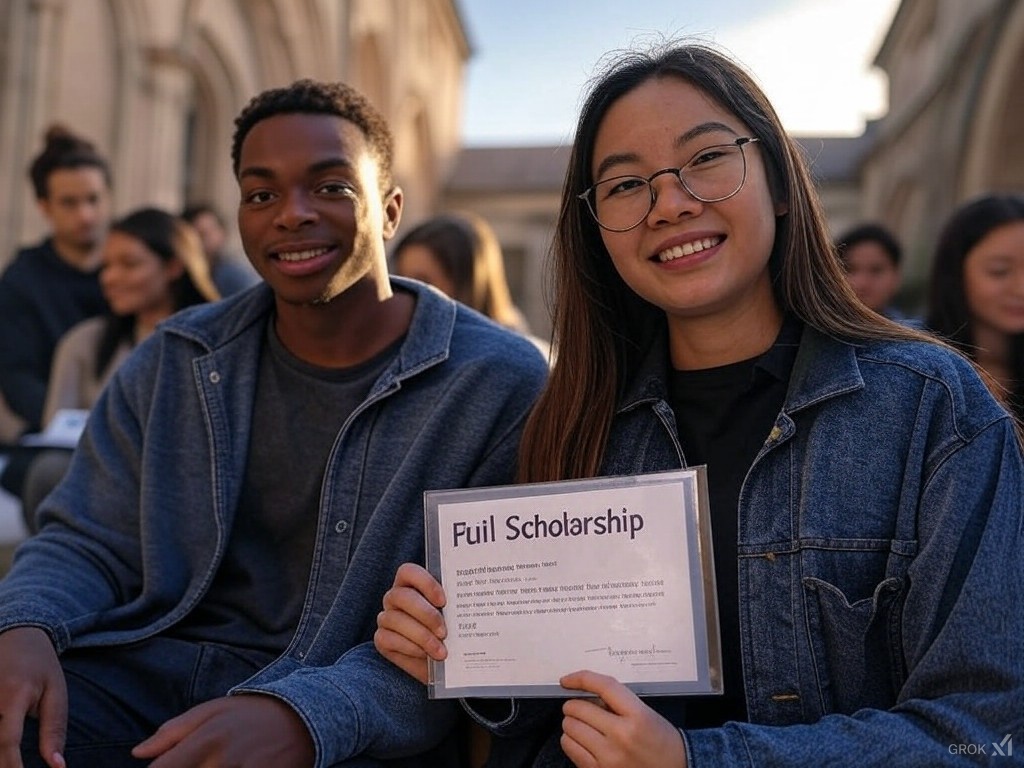Have you always wanted to pursue a master’s degree in finance in Europe but you’re reluctant because of the costs involved? Yes, you’re not the only one being affected. A large number of students around the world go for the international edge and high-quality education that Europe is known for, particularly in finance.
Let’s face the reality, though, studying overseas is not inexpensive. Aside from school fees, other expenses for a master’s program include books, rent, food, transportation, and possibly even insurance and visa fees.
Scholarships can change everything. You can literally go from thinking, “There’s no way I can afford this,” to thinking, “Wow, I’m actually doing this!” The good news is that there are many scholarships available in Europe that are tailored to the needs of international students who want to study finance. Some are fully funded. Yea, they’ll cover pretty much everything. While others might just handle your tuition or give you a living stipend. But either way, it’s a big help.
So, how do you actually get one of these scholarships? What do you need? Where do you apply? Let’s break it all down in a simple way for you to get through.
About Master’s in Finance Scholarship in Europe
The main goal of Master of Finance scholarships in Europe is to draw in the best students from around the world. European governments and universities actively seek out students from around the globe because they understand that diversity fosters innovation and reputation. Their method of promoting that is through scholarships.
Scholarship amounts differ. Certain full scholarships can pay for your tuition and provide you with a stipend, which can be anywhere between €800 and €1,200 a month. Additionally, there are partial scholarships that may only cover a portion of your tuition, such as €5,000 out of €12,000, which is still very beneficial. Some are need-based, some are merit-based, and some combine the two.
Prominent academic institutions such as Erasmus School of Economics, HEC Paris, and Bocconi University in Italy provide financial assistance to students.
Also, there are government-level scholarships like Erasmus+, DAAD (Germany), or Chevening (UK), which are open to many disciplines including finance.
Eligibility Requirements for Master’s in Finance Scholarship in Europe
Okay, let’s talk about who actually qualifies. Most European scholarships for finance programs aren’t just handed out to anyone. You’ve got to meet some basic requirements:
- First off, you need a bachelor’s degree. It’s usually in finance, economics, accounting, or something related.
- A good GPA definitely helps. Some schools are strict about it, while others are more flexible.
- You’ll likely need to show English proficiency if English isn’t your first language. IELTS or TOEFL scores are the usual go-to.
- For some top-tier scholarships, they look for leadership experience or extracurricular involvement.
- You also have to be accepted (or applying) to a recognized finance program in Europe. In some cases, you apply for the scholarship after getting your admission offer.
Lastly, and a solid motivation letter or personal statement is important. They want to know why you want this and what you plan to do with it.
How to Get a Scholarship for a Master’s in Finance in Europe
Now let’s go step-by-step so you don’t get lost in the way:
Step 1: Start Researching Early
Don’t wait till the last minute, seriously. Some scholarships close a year before the actual program starts. So, if you want to start school in Fall 2026, you better start digging for scholarships by mid-2025.
Google is your friend, but also check university websites directly. Most of them have a “Fees & Funding” or “Scholarships” section. You can also check platforms like DAAD, Erasmus Mundus, or the European Funding Guide.
Step 2: Choose the Right Program and Country
The second step is to pick the right program and country. Different countries have different rules and options. For example, Germany has a lot of free-tuition universities and DAAD scholarships, while the UK has options like Chevening and university-specific awards. France and Italy also offer generous merit-based scholarships.
I will advise you choose a university that not only has a strong finance program but also has a reputation of offering scholarships to international students.
Step 3: Prepare a Strong Application Package
This is your time to shine. Most scholarship committees want to know who you are beyond just grades. So:
- Write a killer personal statement. Be honest, personal, and clear about your goals.
- Get recommendation letters from professors or employers who know your work.
- Polish your CV/resume. Highlight your achievements, internships, volunteer work, leadership roles—anything that makes you stand out.
If required, take the IELTS/TOEFL and do well.
Step 4: Apply for Admission and Scholarships Simultaneously
Some schools allow you to apply for scholarships at the same time as your admission, while others want you to first get accepted. Always read the fine print.
Make sure you submit everything before the deadline. No excuses. Double-check all documents. And yes, missing one document can mess it all up.
Step 5: Pass the Interview
Some competitive scholarships, especially the fully-funded ones, may require an interview. You have to treat it seriously. Know your goals, be confident, and show your passion for finance and why Europe is your destination.
Step 6: Follow Up and Stay Positive
After applying, you might wait weeks or even months. Don’t panic. Use that time to explore backup options or apply for other scholarships. Some students apply for 5 to 10 scholarships before landing one. Rejection is part of the game so don’t let it stop you.
Fully Funded Scholarships in Europe on Master’s in Finance for International Students
Here are a few popular ones that international students go for:
- Erasmus Mundus Joint Master Degrees – Erasmus is a very popular name in scholarship in Europe. It covers your tuition, travel, insurance, and monthly stipend. It’s very competitive but worth it.
- DAAD Scholarships – This is a good one if you’re looking at German universities. Full tuition, monthly stipend, travel, insurance—the full package.
- Chevening Scholarships – Funded by the UK government. This scholarship covers full tuition and gives you living expenses.
- Swedish Institute Scholarships – This one is for students going to Sweden. Covers tuition, living expenses, and sometimes travel costs.
- Bocconi Merit Awards – Full tuition waiver and sometimes a stipend.
- HEC Paris Excellence Scholarships – As the name implies, this is Based on merit, these can cover partial to full tuition fees.
There are many more, but these are some of the big names.
Deadline for Master’s in Finance Scholarship in Europe
The application deadline for these depend on the scholarship and the university. Generally, most scholarship fall between October and March for programs that start the following September. Some government scholarships like DAAD or Chevening have their own timelines, usually opening around August/September and closing by November.
So yeah, if you’re planning to study next year, this year is your time to act. Once deadlines are gone, you’ll have to wait another whole year.
Conclusion
Getting a scholarship for a Master’s in Finance in Europe is possible if you want it to be. My advice for you is to stay focused, prepare early, and don’t give up after a few rejections.
A lot of students from foreign countries even Africa have made it. So you can make it too. Remember, it’s not just about being the smartest but it’s about showing drive, passion, and potential.
Also, don’t rely on just one scholarship. Apply for multiple ones. Look for those lesser-known university-based scholarships too. They may have fewer applicants, which means better chances for you.
We at EuroInfopedia wishes you all the best on your application and hope to see you continue your education in Europe soon!


